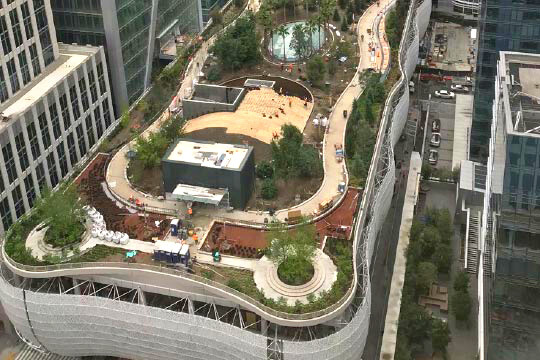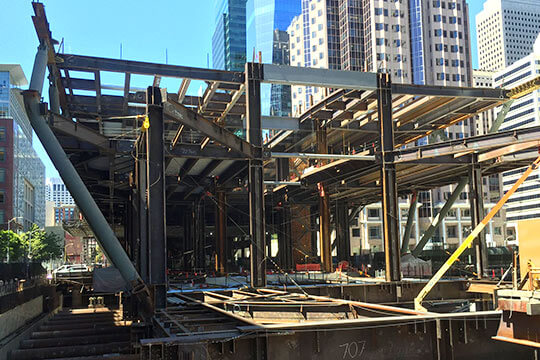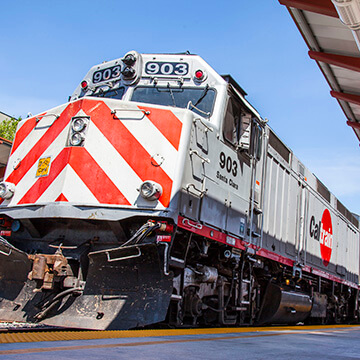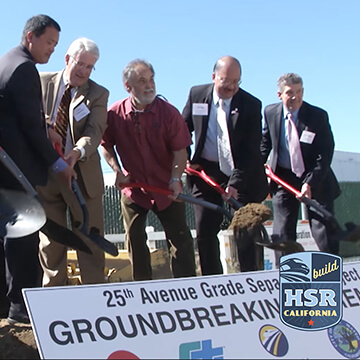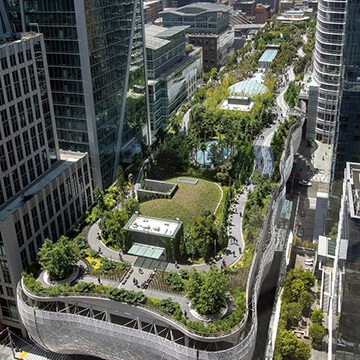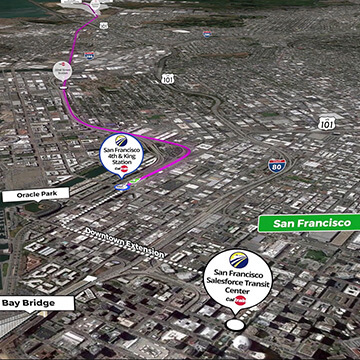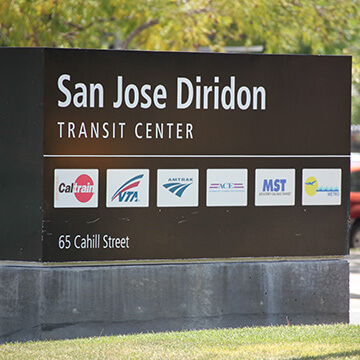High-Speed Rail at a Glance
Northern California
California is building a high-speed rail system to connect the megaregions of the state and transform how people travel. More than $1.6 billion of Proposition 1A funds and other California High-Speed Rail Authority funding are supporting investments in Northern California, including $714 million to Caltrain’s Peninsula Corridor Electrification Project.
HIGH-SPEED RAIL WILL provide clean, modern transportation for the millions of Northern California residents and will help tie the state’s economies together like never before. In Northern California, the system will have stations in San Francisco, Millbrae, San José, and Gilroy that will connect with BART, Caltrain, Amtrak, ACE and other regional rail and transit options.
Addressing the Issues
Curbing Air Traffic Congestion [1]
- The busiest domestic route in the nation is between SFO and LAX
- 1 in 5 flights out of the Bay Area is headed to the Los Angeles Area
- High-speed rail is the least expensive, most practical, and by far the greenest way to increase transportation capacity in California
Traffic [2]
- San Francisco drivers averaged 97 hours sitting in traffic during peak hours in 2019
- Traffic jams cost drivers $1,436 and the City of San Francisco $3 billion in 2019
- High-speed rail systems are fast and efficient, meaning you can reliably know when you’ll get to your destination
Access to More Affordable Housing [3]
- The average home price in the San Francisco Bay Area is now more than $1,300,000
- The average home price in the Central Valley is approximately $445,000
- High-speed rail can allow Silicon Valley to continue to flourish by relieving some of the housing pressure by reducing travel times to the Central Valley
Sections & Stations
The Authority is moving forward with the environmental documents for the San Francisco to San Jose project section and the San Jose to Merced project section. To view additional resources related to these documents, visit meethsrnorcal.org.
Explore below for details on high-speed rail project sections and current station planning and development in Northern California. The Authority continues to work with local partners to develop station area plans based around proposed high‑speed rail centers.
PROJECT PROGRESS
Want More Information?
Find more information about high-speed rail in California. From factsheets and regional newsletters, to maps and outreach events, get on board with the most up‑to‑date program information.
The California High-Speed Rail Authority makes every effort to ensure the website and its contents meet mandated ADA requirements as per the California State mandated Web Content Accessibility Guidelines 2.0 Level AA standard. If you are looking for a particular document not located on the California High-Speed Rail Authority website, you may make a request for the document under the Public Records Act through the Public Records Act page. If you have any questions about the website or its contents, please contact the Authority at info@hsr.ca.gov.



